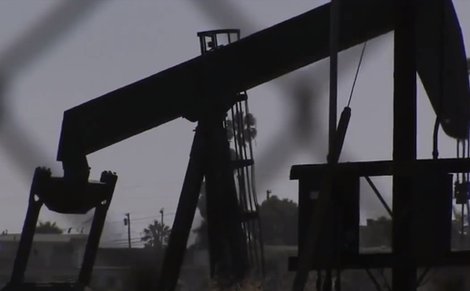|
|
|
|
|

Yahoo Contributor Network - Oil drilling in the United States
By Christopher Morris | Yahoo Contributor Network
Energy experts have warned recently that Britain currently stores enough natural gas for only thirteen days
of supply. Such a stark reality indicates how little reserve actually exists to
fall back on. The news also brings to mind the concept of energy and fossil
fuel shortage, depicted in movies such as 'Mad Max'. But with our entire
economy and way of life dependent on one particular fossil fuel, namely crude
oil, how long can we expect this commodity to last, and for the present levels
of production to be maintained?
A study by a German think tank published in September, 2010, warned of the potential for a dire global economic crisis in the next
fifteen years as a result of a peak and irreversible decline in world oil
supplies. The study stated that there is "some probability that peak oil
will occur around the year 2010 and that the impact on security is expected to
be felt 15 to 30 years later." What could the effects of this be? "In
the medium term the global economic system and every market-oriented national economy
would collapse", the report cheerily predicted.
Meanwhile, in June, 2011, The Guardian reported that British ministers had ignored reports from the Wicks review into
energy security, which predicted that there could be significant negative
economic consequences to the United Kingdom in the near-term caused by a peak
in world oil production.
The actual supply of oil is not merely dependent on
its existence, but also production. It is very tricky to know how much oil
there is in the world, as this information is carefully guarded by some
incredibly powerful vested interests. Similarly, it would be extremely
difficult to predict when peak production will occur, even if we could predict
the behaviour of the oil cartel, all of whom have a vested interest in capping
production, because it will tend to keep prices high. There's no incentive for
them to produce a surplus of oil, because this would destroy the market. This is
a control issue, as much as a production issue.
We do know that there are untapped sources of oil
that have yet to be fully realised. One of the most obvious of these is in
Venezuela, which is yet to reach the top ten nations in the world in terms of
oil production, but is thought to have the biggest reserves of the commodity of any nation on the planet. It is often argued that many other sources
could also exist, and furthermore that actually the looming scarcity of oil
presents an opportunity not a disaster. We have the chance to meet the problem
head on and solve it before it becomes a crisis.
Thus, peak oil could be a baseless scare, or it may
have some substance. Both viewpoints have been advocated. Two things, I
believe, can be asserted, the first one with virtual certainty. Firstly, there
is going to be a point at some time in the future when oil production begins to
decrease. Secondly, the policies related to climate change are likely to prompt
this in the near future. And it could be strongly asserted, thirdly, that the
existing oil cartel has a clear incentive to keep the levels of production low,
regardless of how small, or otherwise, the world reserves of crude oil have
become.
The theory of peak oil production is somewhat
contentious in terms of timescale, as it is far too difficult to obtain
reliable, consistent information. There are those that believe it is some years
away. There are those that believe oil will remain plentiful for generations.
There are those that believe it is just around the corner. However, regardless
of your opinion on the matter, a view that the vast majority of people do subscribe
to is that oil is a finite commodity, a fossil fuel, and at some point oil
production is going to decline. Would it not make sense to prepare for this
inevitability now?
Christopher Morris is fascinated by quantum
physics, would love to work out how to split the atom, and is a regular
contributor to Yahoo on television, cinema, video games, technology and politics.
uk.news.yahoo.com